日期:2023/11/02 IAE

President Biden and Vice President Harris participate in an event highlighting the Administration’s commitment to advancing the safe, secure, and trustworthy development and use of Artificial Intelligence.拜登總統和哈里斯副總統參加了一項活動,強調政府致力於推動人工智慧的安全、可靠和值得信賴的開發和使用。
以合乎道德和負責任的方式使用人工智慧
我們已經看到人工智慧 (AI) 的功能和使用取得了非凡的進步。 人工智慧有潛力提高許多部門的生產力並改善公共服務,但它也可能威脅全球穩定並破壞我們的價值觀。 這些風險是英國政府主辦的人工智慧安全高峰會(11 月 1 日至 2 日)的主題。 聯合國秘書長已要求其人工智慧諮詢機構的專家就人工智慧的國際治理、其風險和挑戰以及如何利用人工智慧加速實現永續發展目標提出建議。
人工智慧高階諮詢機構
• 全球人工智慧勢在必行
隨著人工智慧相關應用、演算法、運算能力和專業知識在國際上變得更加普遍,全球協調的人工智慧治理是利用人工智慧造福人類、同時解決其風險和不確定性的唯一途徑。
• 聯合國的回應
為了促進全球包容性的方法,聯合國秘書長正在召集一個多方利益相關者人工智慧高階諮詢機構,為人工智慧的國際治理進行分析並提出建議。
• 需要跨學科的專業知識
該機構匯集了來自世界各地的相關學科的多達38 名專家,將就如何為了共同利益而治理人工智慧提供不同的觀點和選擇,使國際上可互通的治理與人權和永續發展目標保持一致。
• 多利害關係人的網路化方法
該機構將由來自政府、私營部門和民間社會的專家組成,將與現有和新興倡議及國際組織廣泛接觸和協商,以在利益相關者群體和網絡之間架起橋樑。
• 支撐身體
聯合國呼籲為該機構的運作和設在秘書長技術特使辦公室 (OSET) 的秘書處提供支援。 透過他們的支持,貢獻者將在面臨緊迫的技術突破時加強利益相關者在人工智慧治理方面的合作,從而為全球更好地治理人工智慧做出貢獻。
聯合主席
• Carme Artigas,西班牙數位化與人工智慧國務秘書
• James Manyika,Google-Alphabet 資深副總裁、研究、技術與社會總裁
會員
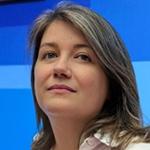
• Anna Abramova,莫斯科國立國際關係學院 (MGIMO) 大學人工智慧中心主任
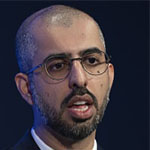
• Omar Sultan Al Olama,阿拉伯聯合大公國人工智慧國務部長
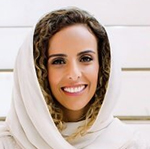
• Latifa Al-Abdulkarim,舒拉委員會(沙烏地議會)成員、沙烏地國王大學電腦科學助理教授

• Estela Aranha,司法與公共安全部長特別顧問(巴西聯邦政府)

• Ran Balicer,以色列 Clalit Health Services 首席創新長兼副總幹事
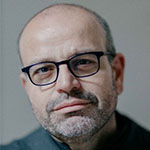
• 保羅‧貝南蒂 (Paolo Benanti),方濟各三階會士,羅馬教皇格里高利大學講師
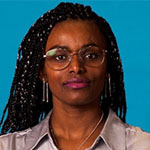
• Abeba Birhane,Mozilla 基金會人工智慧責任高級顧問
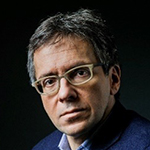
• Ian Bremmer,歐亞集團總裁兼創辦人

• Anna Christmann,德國聯邦政府航空航天協調員

• Natasha Crampton,微軟首席人工智慧官

• Nighat Dad,巴基斯坦數位版權基金會執行董事
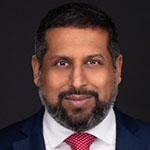
• Vilas Dhar,Patrick J. McGovern 基金會主席
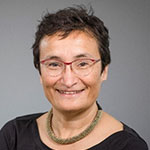
• Virginia Dignum,於默奧大學負責任人工智慧教授

• Arisa Ema,東京大學副教授
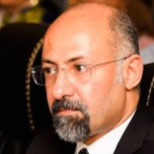
• Mohamed Farahat,北非 IGF 法律顧問兼 MAG 副主席
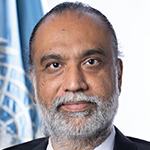
• Amandeep Singh Gill,秘書長技術特使

• Wendy Hall,南安普敦大學電腦科學皇家教授
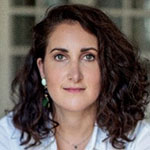
• Rahaf Harfoush,數位人類學家
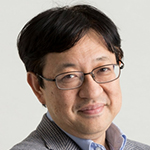
• Hiroaki Kitano,索尼集團公司技術長

• Haksoo Ko,韓國個人資訊保護委員會 (PIPC) 主席

• Andreas Krause,蘇黎世聯邦理工學院教授

• Maria Vanina Martinez Posse,人工研究所 (IIIA-CSIC) Ramon 和 Cajal 研究員

• Seydina Moussa Ndiaye,Cheikh Hamidou Kane 數位大學講師

• Mira Murati,OpenAI 首席技術官
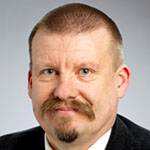
• Petri Myllymaki,赫爾辛基大學電腦科學系教授
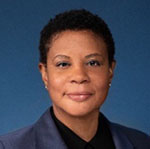
• Alondra Nelson,高等研究院 Harold F. Linder 教授
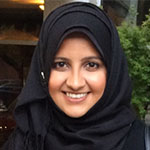
• Nazneen Rajani,Hugging Face 首席研究員
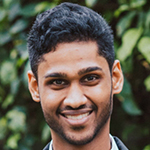
• Craig Ramlal,西印度群島大學聖奧古斯丁分校控制系統組長
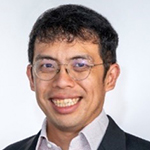
• 何瑞敏,新加坡政府首席人工智慧長兼副首席數位技術官
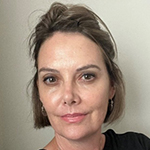
• Emma Ruttkamp-Bloem,比勒陀利亞大學教授
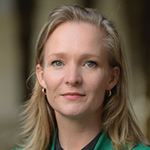
• Marietje Schaake,史丹佛大學網路政策中心國際政策主任
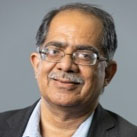
• Sharad Sharma,iSPIRT 基金會共同創辦人

• Jaan Tallinn,劍橋存在風險研究中心共同創辦人
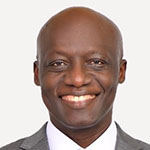
• Philip Thigo,肯亞政府顧問

• Jimena Sofia Viveros Alvarez,墨西哥最高法院辦公室主任兼法官 Loretta Ortiz 的首席法律顧問
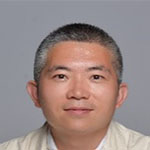
• 曾毅,中國科學院類腦認知人工智慧實驗室主任、教授

• 張凌瀚,中國政法大學資料法治研究院教授
Towards an ethical and responsible use of AI
We have seen extraordinary advances in the capabilities and use of artificial intelligence (AI). AI holds the potential to multiply productivity in many sectors and to improve public services, but it could also threaten global stability and undermine our values. These risks are the topic of the AI Safety Summit hosted by the UK government (1-2 November). The UN Secretary-General has asked experts in his AI Advisory Body to issue recommendations on the international governance of artificial intelligence, its risks and challenges and how to leverage AI to accelerate the delivery of the SDGs.
High-level Advisory Body on Artificial Intelligence
- The Glol AbaI Imperative
Globally coordinated AI governance is the only way to harness AI for humanity, while addressing its risks and uncertainties, as AI-related applications, algorithms, computing capacity and expertise become more widespread internationally.
- The UN's Response
To foster a globally inclusive approach, the UN Secretary-General is convening a multi-stakeholder High-level Advisory Body on AI to undertake analysis and advance recommendations for the international governance of AI.
- Calling for Interdisciplinary Expertise
Bringing together up to 38 experts in relevant disciplines from around the world, the Body will offer diverse perspectives and options on how AI can be governed for the common good, aligning internationally interoperable governance with human rights and the Sustainable Development Goals.
- A Multistakeholder, Networked Approach
The Body, which will comprise experts from government, private sector and civil society, will engage and consult widely with existing and emerging initiatives and international organizations, to bridge perspectives across stakeholder groups and networks.
- Supporting the Body
The UN is calling for support to the Body’s operations and the Secretariat, based in the Office of the Secretary-General’s Envoy on Technology (OSET). Through their support, contributors will strengthen stakeholder cooperation on governing AI in the face of pressing technical breakthroughs, and thereby contribute to better-governed AI globally.
Co-Chairs
- Carme Artigas, Secretary of State for Digitalisation and Artificial Intelligence of Spain
- James Manyika, Senior Vice President of Google-Alphabet, President for Research, Technology and Society
Members

Anna Abramova, Director of the Moscow State Institute of International Relations (MGIMO)-University AI Centre

- Omar Sultan Al Olama, Minister of State for Artificial Intelligence of the United Arab Emirates

- Latifa Al-Abdulkarim, Member of the Shura Council (Saudi Parliament), Assistant Professor of Computer Science at King Saud University

- Estela Aranha, Special Advisor to the Minister of Justice and Public Security (Federal Government of Brazil)
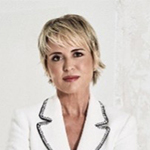
- Ran Balicer, Chief Innovation Officer and Deputy Director General at Clalit Health Services Israel
- Paolo Benanti, Third Order Regular Franciscan, Lecturer at the Pontifical Gregorian University
- Abeba Birhane, Senior Advisor in AI Accountability at Mozilla Foundation
- Ian Bremmer, President and Founder of Eurasia Group
- Anna Christmann, Aerospace Coordinator of the German Federal Government
- Natasha Crampton, Chief Responsible AI Officer at Microsoft
- Nighat Dad, Executive Director of the Digital Rights Foundation Pakistan
- Vilas Dhar, President of the Patrick J. McGovern Foundation
- Virginia Dignum, Professor of Responsible Artificial Intelligence at Umeå University
- Arisa Ema, Associate Professor at the University of Tokyo
- Mohamed Farahat, Legal consultant & Vice chairman of MAG of North Africa IGF
- Amandeep Singh Gill, Secretary-General's Envoy on Technology
- Wendy Hall, Regius Professor of Computer Science at the University of Southampton
- Rahaf Harfoush, Digital Anthropologist
- Hiroaki Kitano, Chief Technology Officer of Sony Group Corporation
- Haksoo Ko, Chairman of Republic of Korea’s Personal Information Protection Commission (PIPC)
- Andreas Krause, Professor at ETH Zurich
- Maria Vanina Martinez Posse, Ramon and Cajal Fellow at the Artificial Research Institute (IIIA-CSIC)
- Seydina Moussa Ndiaye, Lecturer at Cheikh Hamidou Kane Digital University
- Mira Murati, Chief Technology Officer of OpenAI
- Petri Myllymaki, Full Professor at the Department of Computer Science of University of Helsinki
- Alondra Nelson, Harold F. Linder Professor at the Institute for Advanced Study
- Nazneen Rajani, Lead Researcher at Hugging Face
- Craig Ramlal, Head of the Control Systems Group, The University of The West Indies at St. Augustine
- He Ruimin, Chief Artificial Intelligence Officer & Deputy Chief Digital Technology Officer, Government of Singapore
- Emma Ruttkamp-Bloem, Professor at the University of Pretoria
- Marietje Schaake, International Policy Director at Stanford University Cyber Policy Center
- Sharad Sharma, Co-founder iSPIRT Foundation
- Jaan Tallin, Co-founder of the Cambridge Centre for the Study of Existential Risk
- Philip Thigo, Adviser at the Government of Kenya
- Jimena Sofia Viveros Alvarez, Chief of Staff and Head Legal Advisor to Justice Loretta Ortiz at the Mexican Supreme Court
- Yi Zeng, Professor and Director of Brain-inspired Cognitive AI Lab, Chinese Academy of Science
- Zahng Linghan, Professor at the Institute of Data Rule of Law, China University of Political Science and Law